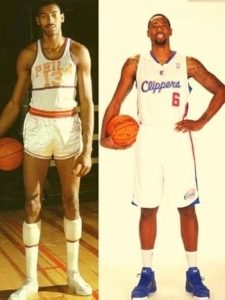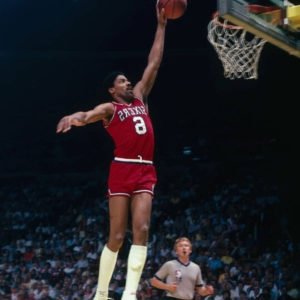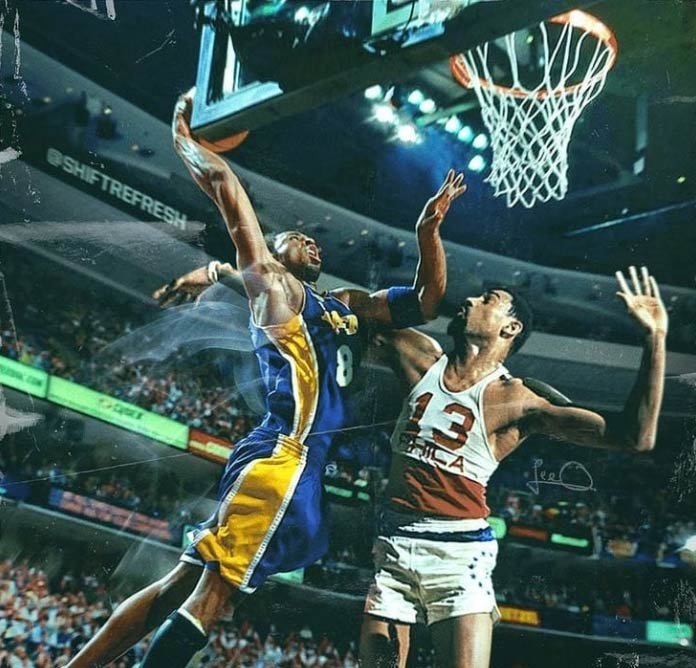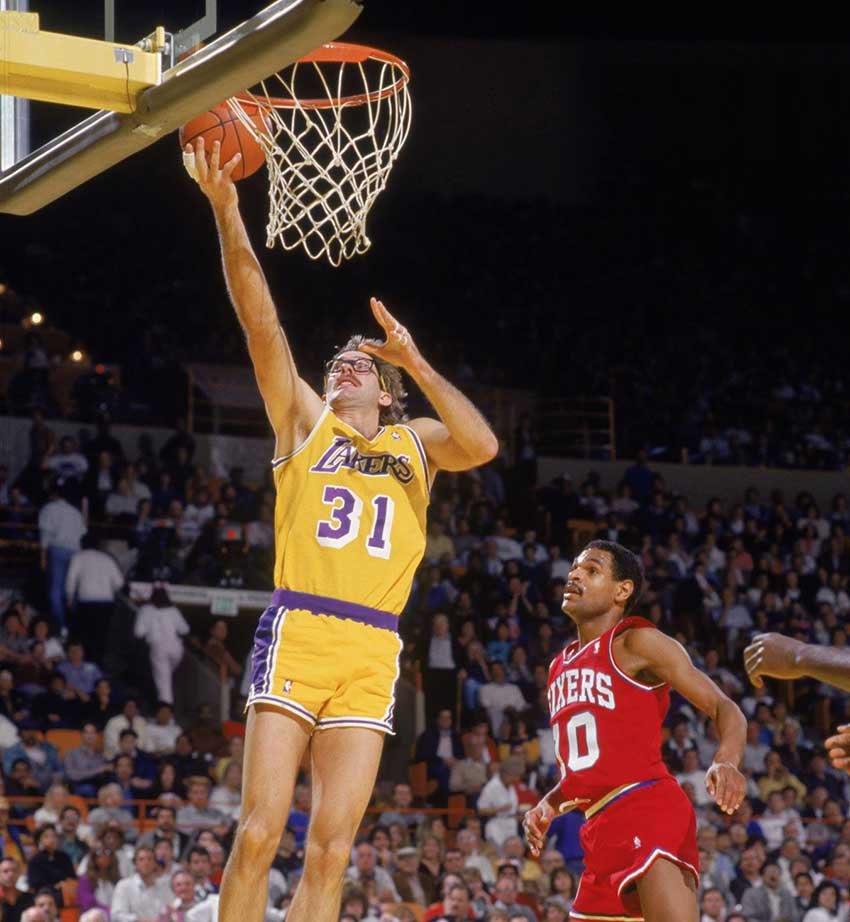Wilt Chamberlain, an emblematic figure in NBA history, amassed a significant net worth, valued at approximately $10 million at the time of his death in 1999. His financial success stemmed from his extraordinary career as a professional basketball player, complemented by astute endorsements, investments, and business ventures. Known for his remarkable scoring prowess and setting multiple records on the court, Chamberlain’s influence transcended the realm of basketball, marking him as a true icon in sports and business.
This section delves into the diverse sources of Wilt Chamberlain’s wealth, offering a detailed analysis of his earnings and financial strategies. We’ll examine how his on-court success, commercial insights, and entrepreneurial spirit combined to forge a legacy that extends beyond his athletic achievements, illustrating his impact as both a sports legend and a savvy businessman.
Full Bio:
| Full Name | Wilton Norman Chamberlain |
| Nickname(s) | The Big Dipper, Wilt the Stilt |
| Date of Birth | August 21, 1936 |
| Place of Birth | Philadelphia, Pennsylvania, USA |
| Date of Death | October 12, 1999 |
| Age at Death | 63 years |
| Height | 7 ft 1 in (2.16 m) |
| Weight | 275 lbs (125 kg) during career |
| Nationality | American |
| High School | Overbrook High School, Philadelphia |
| College | University of Kansas |
| NBA Draft | 1959 (Territorial pick by Philadelphia Warriors) |
| NBA Debut | October 24, 1959 |
| Position | Center |
| Teams Played For | Philadelphia/San Francisco Warriors, Philadelphia 76ers, Los Angeles Lakers |
| Jersey Numbers | 13 |
| NBA Championships | 2 (1967, 1972) |
| Career Highlights |
|
| Career Points | 31,419 (30.1 PPG average) |
| Career Rebounds | 23,924 (22.9 RPG average) |
| Career Assists | 4,643 (4.4 APG average) |
| Hall of Fame Induction | 1978 |
| Notable Records | 100 points in a single NBA game (March 2, 1962), Only player to average 50 points in a season |
| Post-Retirement Activities | Actor, Author, Volleyball Player, Business Ventures |
| Books Authored | “Wilt: Just Like Any Other 7-Foot Black Millionaire Who Lives Next Door” (1973), “A View From Above” (1991) |
| Net Worth at Death | Estimated $10 million |
| Philanthropy | Donated to charities supporting youth and education |
| Cause of Death | Heart failure |
| Legacy | One of the greatest players in NBA history, Influenced the role of the big man in basketball |
| Famous Quote | “Nobody roots for Goliath.” |
Wilt Chamberlain’s Net Worth at Death
The net worth of this wealthy man was at the time of his death $10 million. In the history of the NBA, he was the first man to earn at least $10,000 per year at that time.
Primary Stage of Life
 This great man was born on Aug 21, 1936, in Philadelphia, Pennsylvania. He is the son of Olivia Ruth Johnson, a domestic worker, and William Chamberlain. The profession of his mother was a homemaker. His father was a welder, custodian, and handyman.
This great man was born on Aug 21, 1936, in Philadelphia, Pennsylvania. He is the son of Olivia Ruth Johnson, a domestic worker, and William Chamberlain. The profession of his mother was a homemaker. His father was a welder, custodian, and handyman.
Related article: Do you know NBA player Kareem Abdul Jabbar? Check his total earnings.
Though at the beginning of his life, he was not interested in basketball later, he engaged in school life basketball. At the time of entering Into Basketball, a career in his school, his height was 6 ft, and 1 inch favored smooth performance. During his school life career, he was called “The Big Dipper.” He showed his dazzling performance in his school career and earned a lot of recognition that cleared the way for his future professional career. During his school life career, he scored more than 70 points per game.
After finishing school, he entered the University of Kansas. University life was not as smooth as school life. His problem with the coach disappointed him.
Wilt Chamberlain’s Career Stats
| Season | Age | Team | G | MP | FG% | FT% | RPG | APG | PPG |
|---|---|---|---|---|---|---|---|---|---|
| 1959-60 | 23 | PHW | 72 | .461 | .582 | 27.0 | 2.3 | 37.6 | |
| 1960-61 | 24 | PHW | 79 | .509 | .509 | 25.7 | 2.4 | 38.4 | |
| 1961-62 | 25 | PHW | 80 | 3882 | .506 | .611 | 25.7 | 2.4 | 50.4 |
| 1962-63 | 26 | SFW | 80 | 3882 | .528 | .580 | 24.3 | 5.0 | 44.8 |
| 1963-64 | 27 | SFW | 80 | 4245 | .527 | .683 | 24.2 | 5.5 | 36.9 |
| 1964-65 | 28 | PHI | 80 | 3681 | .550 | .613 | 24.6 | 7.8 | 34.7 |
| 1965-66 | 29 | PHI | 79 | 3680 | .540 | .519 | 24.2 | 5.0 | 33.5 |
| 1966-67 | 30 | PHI | 81 | 3992 | .683 | .441 | 24.1 | 7.8 | 24.1 |
| 1967-68 | 31 | PHI | 82 | 4267 | .595 | .586 | 23.8 | 8.6 | 24.3 |
| 1968-69 | 32 | LAL | 81 | 3594 | .583 | .570 | 21.1 | 4.5 | 20.5 |
| 1969-70 | 33 | LAL | 12 | 533 | .727 | .458 | 18.4 | 4.6 | 27.3 |
| 1970-71 | 34 | LAL | 82 | 3475 | .649 | .496 | 18.2 | 4.6 | 20.7 |
| 1971-72 | 35 | LAL | 82 | 3268 | .649 | .475 | 19.2 | 4.4 | 14.8 |
| 1972-73 | 36 | LAL | 82 | 3169 | .727 | .659 | 18.6 | 3.7 | 13.2 |
| 1973-74 | 37 | LAL | 60 | 2115 | .727 | .474 | 13.2 | 2.6 | 13.8 |
| Career | 1045 | 47786 | .540 | .511 | 22.9 | 4.4 | 30. |
Wilt Chamberlain’s NBA Career
During his professional career in the NBA, he played for the Philadelphia/San Francisco Warriors, the Philadelphia 76ers, and the Los Angeles Lakers with a reputation and outstanding performance.
The starting of professional basketball journey began with the Harlem Globetrotters with a signing for $50,000. George Gervin’s son is playing with this team now. Later, after playing one season with the Harlem Globetrotters, he started his next journey with the Philadelphia Warriors in 1959.
View this post on Instagram
In 1965, he changed the club and started playing with the Philadelphia 76ers. To this team, he gave an impressive performance. With his magical play, the team won the first NBA championship.
In 1968 he again changed his club. At this time made a contract with the Los Angeles Lakers. 1972 the team won the championship for his alluring performance. However, the last innings of his life were with the San Diego Conquistadors before his retirement.
Retirement
After finishing his glowing professional life, he started a new journey in life with his business enterprise. Like the field of basketball, he also became successful in the field of business. He was a successful businessman in the stock market and real estate. His nightclub became popular in the Harlem area. Apart from his business life, he extended branches of his life to the acting arena.
Estimated Salary Table for Elgin Baylor
| Year | Team | Estimated Salary ($) | Notes and Achievements |
|---|---|---|---|
| 1958-59 | Minneapolis Lakers | 20,000 | Rookie season; named NBA Rookie of the Year |
| 1959-60 | Minneapolis Lakers | 22,500 | Established as an elite scorer in the league |
| 1960-61 | Los Angeles Lakers | 25,000 | Transitioned with the team to Los Angeles |
| 1961-62 | Los Angeles Lakers | 30,000 | Averaged 38.3 PPG despite part-time service (military) |
| 1962-63 | Los Angeles Lakers | 35,000 | Set a franchise record for most points in a game |
| 1963-64 | Los Angeles Lakers | 40,000 | Struggled with knee injuries but remained productive |
| 1964-65 | Los Angeles Lakers | 45,000 | Rebounded from injuries, returning to All-Star form |
| 1965-66 | Los Angeles Lakers | 50,000 | Key player in Lakers’ run to the NBA Finals |
| 1966-67 | Los Angeles Lakers | 55,000 | Helped Lakers maintain competitive edge |
| 1967-68 | Los Angeles Lakers | 60,000 | Paired effectively with Jerry West for playoff push |
| 1968-69 | Los Angeles Lakers | 70,000 | Contributed to the Lakers’ strong playoff performance |
| 1969-70 | Los Angeles Lakers | 75,000 | Continued as one of the league’s elite forwards |
| 1970-71 | Los Angeles Lakers | 80,000 | Final full season before retiring due to injuries |
| 1971-72 (partial) | Los Angeles Lakers | 25,000 | Retired early in the season; Lakers went on to win NBA title |
Wilt Chamberlain’s Death
As he at the early of life was sick, he had to struggle with his heart problem all over his life. In 1990, his physical condition deteriorated, and in 1999 he cut the relationship with the play at the age of 63.
Achievement
 In his career, he picked up a lot of achievements, records, awards, and recognitions. After Oscar Robertson, he was the 1960s Rookie of the year. He was an All-Star selection 13 times and ten All-NBA selections thirteen times. He won the All-NBA selections ten times.
In his career, he picked up a lot of achievements, records, awards, and recognitions. After Oscar Robertson, he was the 1960s Rookie of the year. He was an All-Star selection 13 times and ten All-NBA selections thirteen times. He won the All-NBA selections ten times.
In 1978 his name was inserted into the Naismith Memorial Basketball Hall of Fame for his outstanding career.
Post-Retirement Income
After retiring from professional basketball, Wilt Chamberlain remained a prominent figure in the sports and entertainment industries. He pursued various opportunities that significantly contributed to his post-retirement income. Chamberlain delved into acting, making appearances in films like “Conan the Destroyer” and television shows such as “The Fresh Prince of Bel-Air.” Additionally, he capitalized on his fame through public speaking engagements, where he shared insights and anecdotes from his illustrious career. Chamberlain also authored several books, including his controversial autobiography “Wilt: Just Like Any Other 7-Foot Black Millionaire Who Lives Next Door,” which sold well and added to his financial portfolio. Furthermore, he was actively involved in endorsing products and brands, leveraging his iconic status to secure lucrative endorsement deals. These diverse income streams ensured that Chamberlain maintained a comfortable lifestyle and remained financially secure long after his basketball career ended.
Investments
Wilt Chamberlain was not only a legendary basketball player but also a savvy businessman who made strategic investments throughout his life. He invested heavily in real estate, owning several properties across the United States, including a luxurious mansion in Bel-Air. Chamberlain’s real estate ventures provided him with substantial rental income and long-term capital gains. He also had a keen interest in the stock market, where he diversified his portfolio to include blue-chip stocks and emerging tech companies. Chamberlain’s business acumen extended to owning a popular nightclub in Harlem, which became a lucrative venture and a hotspot for celebrities and sports figures. Additionally, he invested in several startups and small businesses, demonstrating his belief in entrepreneurship and innovation. These investments not only multiplied his wealth but also showcased his ability to transition from sports to successful business ventures, ensuring his financial legacy endured.
Comparison with Peers
Comparing Wilt Chamberlain with his peers highlights his unique position in the history of basketball and his financial prowess. While contemporaries like Bill Russell and Kareem Abdul-Jabbar are celebrated for their championship successes and longevity in the NBA, Chamberlain’s career is distinguished by his extraordinary individual records and financial acumen. Unlike Russell, who primarily focused on his career achievements, Chamberlain leveraged his basketball fame to diversify his income through acting, writing, and business ventures. Abdul-Jabbar, known for his consistent performance and activism, also ventured into writing and acting, but Chamberlain’s real estate and investment portfolios were particularly noteworthy. Chamberlain’s strategic approach to his finances set him apart, ensuring he maintained significant wealth post-retirement. His ability to monetize his fame and invest wisely provided a blueprint for future athletes on managing wealth, making his financial legacy as remarkable as his athletic achievements.
Chamberlain’s Height
The height of this man was seven ft. and 1 inch. He was one of the taller men in the NBA. His height favored him in the NBA.
Career Earnings and Financial Journey
Bob Cousy’s financial trajectory reflects the evolution of NBA salaries and his ventures beyond the basketball court. Starting with an annual salary of $9,000 in his rookie year with the Boston Celtics in 1950—a figure he negotiated down from his initial request of $10,000—Cousy’s earnings grew alongside his career. By the end of his tenure with the Celtics in 1963, his salary had increased to $35,000.
Beyond his playing days, Cousy transitioned into coaching, taking the helm at Boston College from 1963 to 1969 and later coaching the Cincinnati Royals from 1969 to 1974. These roles not only extended his influence in basketball but also contributed to his financial stability.
In addition to his basketball-related income, Cousy engaged in various endorsement deals and entrepreneurial ventures, further bolstering his net worth. His involvement in founding the NBA Players Association in 1954 also played a pivotal role in advocating for better salaries and working conditions for players, impacting the financial landscape of the league.
Conclusion
Wilt Chamberlain’s legacy goes far beyond his incredible net worth. His contributions to basketball are immeasurable, not just because of his on-court records but also due to the impact he had on the game itself. From his dominant physicality and scoring records to his charisma off the court, Wilt’s influence inspired generations of players. Though he left the world too soon, Chamberlain’s career achievements and cultural influence continue to be celebrated by fans and basketball enthusiasts worldwide. His financial success, driven by both his sports career and business ventures, reflects his adaptability and foresight beyond the basketball court.
Frequently Asked Questions
What was Wilt Chamberlain’s net worth at the time of his death?
- Wilt Chamberlain’s estimated net worth at the time of his death was around $10 million.
How did Wilt Chamberlain make his money?
- Wilt made his wealth primarily through his NBA salary, endorsements, investments, and several successful business ventures.
What records did Wilt Chamberlain set during his career?
- Wilt Chamberlain holds numerous NBA records, including the famous 100-point game and the record for most points in a single season.
Did Wilt Chamberlain invest in business ventures?
- Yes, Wilt invested in real estate, owned multiple businesses, and was involved in a variety of entrepreneurial activities after his basketball career.
What was Wilt Chamberlain’s contribution to basketball?
- Wilt revolutionized the game with his size, athleticism, and skills, influencing rules and playing styles and inspiring future generations of players.
Over the past five years, Rick C. Nees has written hundreds of NBA players' biographies, some of which have already been published in famous newspapers. He previously worked as- Commentator, Basketball Analyst, Basketball Player, Newspaper Sports Editor, Radio sports presenter. Rick grew up watching basketball leagues. He was a state-level high school basketball player who followed all NBA events since he was a child.
































